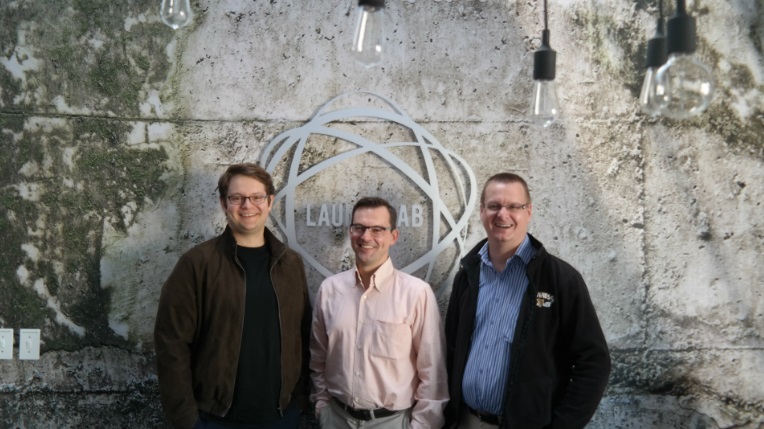South Africa’s esports scene is set for a major showdown as Hyprop and MTN introduce SHIFT COD, a Call of Duty tournament forming part…
SA’s Custostech lays off staff after VC sues startup for $4.5m over failed investment bid

Stellenbosch-based startup Custostech says it has been forced to lay off most its staff after SA venture capital (VC) company HAVAÍC sued the startup for $4.45-million, alleging its founders reneged on an investment agreement.
In legal papers, Custostech, which uses an innovative blockchain solution to protect media such as films from piracy and has helped successfully protect about 600 film titles, disputes having reneged on the agreement.
The startup’s founders Gert-Jan van Rooyen and Fred Lutz argue that they never signed the final agreement to accept the VC’s investment.
Van Rooyen, who is the startup’s CEO, told Ventureburn, last week that the startup had laid off eight of its 10 employees and that effective from 31 March would be operating on a skeleton staff of two part-timers to ensure that the company could continue to manage contracts with its current clients.
He and Lutz have also had to resign in order to cut costs and are working part-time on the startup, with the hope of starting things up again once the matter is resolved.
Custostech says it has been forced to lay off most its staff after SA VC HAVAÍC sued the startup for $4.45m, alleging its founders reneged on an investment agreement
Van Rooyen said the startup — which has raised a total of R28-million since he, Lutz and Herman Engelbrecht founded it in 2014 — was forced to lay off staff after the VC issued summons to sue the startup, alleging he and co-founder Fred Lutz turned down the VC’s investment offer of R3.5-million.
While the case has yet to be heard in court, the Cape Town based VC argues in a summons filed in the Western Cape High Court on 20 August last year that its investors lost out on a valuable business opportunity, after the deal was not signed.
The summons was issued against Custostech and its subsidiary CMT Research Proprietary Limited, both of which the VC was going to invest in.
The VC says in the summons, that the $4.45-million in damages is calculated from “the value of the equity it would have held in the startup on the strategic exit date, divided by the proportional size of the VC’s shareholding in the startup, less the sum of R3.5-million and the $1-million Series-A investment”.
Van Rooyen confirmed that the startup was in the process of raising a Series-A round after having run short of cash. HAVAÍC’s investment was to form part of the round.
He and Lutz argue that the VC’s legal bid led to two US investors that had already committed to invest a total of $300 000 in the startup pulling out. Added to this, a Hong Kong-based VC investor that was to invest an amount to make up for the startup having not gone with HAVAÍC’s contribution, also pulled out.
‘Offer was accepted argues VC’
HAVAIC argues that on 18 April 2019, one of the VC’s partners, Grant Rock, sent the startup’s founders a written offer of purchase, after the two parties signed a non-binding agreement on 13 March 2019.
Part of the conditions of the non-binding agreement was that beyond investing in the round, the VC would act in an advisory capacity for the upcoming round, for which it would be remunerated a fee of 3.95% on the investment amount of each investor committing to the round.
The purchase agreement of 18 April, says the VC, was further supplemented by a written offer from HAVAIC CEO Ian Lessem to invest R3.5-million.
HAVAIC says Custostech, represented by Lutz accepted Lessem’s offer in writing on the same day.
In an email to Lutz, dated 29 April 2019 and with the subject line “Re: Call about advisory agreement”, Lessem wrote: “Hi Fred, To confirm, we would like to advance R3.5m. You happy with that? Ian”.
Lutz responded on the same day, by saying: “Hi Ian, Yes, thanks. We are happy with that. I’m getting the final ducks (getting final buy-in from everyone before they recieve the final documents) in a row this side, and then I’ll send out the resolutions to our board and shareholders. I’ll keep you posted.”
In a second email, sent to Lessem the following day, Lutz notes that the startup has received “buy-in” for the signing of the agreement.
“Hi Ian, I’ve had discussions with the board members, and we have buy-in for the agreement. To lay the cards on the table, Anita (Nel — CEO of Innovus, a shareholder in Custostech — Ed) is disgruntled by the fee on the investment from the university. She will not block us from taking the investment, but she is the type to hold grudges and burn bridges.
“In the call with her where I explained that this was what we already agreed upon, she mentioned that she “was” excited to work with HAVAIC for some of the other university spinouts. As I mentioned, she and the rest of the investors will sign off on the agreement as-is, but if you were thinking about building a long term relationship with the university directly, I would consider making a concession, but that is completely up to you,” writes Lutz.
‘We never signed anything’
In response in its plea (its legal response and defence to HAVAIC’s summons) filed on 26 March 2020, Custostech denies that the startup’s founders Lutz and Van Rooyen, signed anything other than the non-binding agreement with the investor on 13 March last year.
The non-binding agreement states that a break fee of R50 000 must be paid by the startup to HAVAIC should the company or its founders delay or fail to sign the acceptance of the offer within three months.
In a legal letter seen by Ventureburn, the startup was issued by a letter of demand by the VC’s attorneys Webber Wentzel, on 17 May.
According to Van Rooyen the legal letter was issued on the same business day after the startup communicated to the investor that the board had decided not to agree to accept the investment offer.
HAVAIC contends in their summons that Lutz’s agreement in an email to the investor, can be taken as confirmation of the agreement for the VC to invest.
However, the founders in their plea contend that the agreement never came into force because they hadn’t signed the actual Convertible Promissory Note.
The startup’s founders single out that while they made comments or amendments on the actual agreement form, they had left blank spaces where signatures should have been.
“The document entitled ‘Convertible Promissory Note’ had spaces for signature by the defendants, above which was recorded that ‘in witness whereof’ intending to be legally bound, each of the companies has executed and delivered this Note as of the date first written above’,” they argue in the plea.
Van Rooyen pointed out to Ventureburn this week that negotiations between the startup and the VC had not yet been concluded, with a lot of “to-ing and fro-ing” around specific terms in the convertible note.
“Note that the full form of the convertible note hadn’t even been finalised, and is still in ‘track changes’ mode with comments and tentative edits. So in either case it’s not clear what would have been ‘agreed’ to,” he added.
Commission fee
Van Rooyen said the board was concerned chiefly about the 3.95% commission fee that HAVAIC had demanded it take on any new investors brought into the startup.
The startup’s biggest shareholder, with a 26% share, is Stellenbosch University’s technology transfer company Innovus.
The startup also has several other investors including two US-based VCs, a local angel investor, and a US-based angel investor. In addition, the Technology Innovation Agency (TIA) had in the past invested R6-million in the startup.
In a call to Ventureburn this week, HAVAIC’s Rock said before it sought legal redress, the VC had met with Innovus in an attempt to try to “resolve the issue” and had even suggested that the VC could drop its advisory service and commission, in order to secure the investment.
However, Nel argues that the VC made no offer to drop the 3.95% fee during their conversation. “In fact, (it was) quite the opposite — it was a ‘take-it or leave-it’ discussion,” she said.
‘Simply trying to enforce our rights’
It is understood that Stellenbosch incubator LaunchLab even approached the Southern African Venture Capital Association (Savca) to intervene, but that the organisation said it couldn’t get involved until the matter was resolved in court.
Van Rooyen said he and Lutz did try to convey to the VC that litigation as first recourse is damaging to the local startup environment.
“Legal fees like these erode value from the ecosystem; they’re paid for by existing investors, and through the hard-fought revenue a startup generates.
“There are so many other options, of which just stepping away from a deal that isn’t working out is probably the most pragmatic. If there truly is a dispute, mediation – even arbitration – are more sensible routes to pursue in such a vulnerable local startup ecosystem,” said Van Rooyen.
But speaking to Ventureburn, Rock stressed that the investor was simply “trying to enforce our rights in terms of an agreement we had”.
Rock said on the understanding that the startup had agreed to the investment, the VC had gone ahead and got the money from its private investors, mainly South Africans he said. The money was in the VC’s bank account ready to invest, he said.
“They (Custostech) told us to get the money ready and that they need the money by a certain time,” he said.
He said the VC’s investors were in agreement about suing the startup. “We asked investors what to do, they said go ahead and litigate,” he said, adding that it was never the VC’s intention to “put them out of business”.
*Correction: We had one of the founders as Herman Lintvelt, but he served only as chief technology officer for the startup. Another Herman, Herman Engelbrecht, was the startup’s third founder. This has been corrected.
Featured image (from left to right): Custostech founders Gert-Jan van Rooyen, Fred Lutz and Herman Engelbrecht (Supplied)

